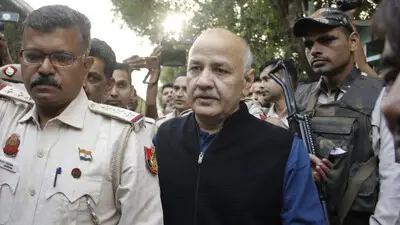Recommended Stories
New York: External Affairs Minister S M Krishna has said that India's a key foreign policy priority is to invest in building a stable and cooperative relationship with China which will be a source of stability and prosperity in the region.
Krishna, who is here to participate in the UN General Assembly session, said a stable and secure Asia, Indian Ocean and the Pacific region is a key requirement of India's own security and prosperity in the 21st century.
"We will continue to invest in building a stable and cooperative relationship with China that is mutually beneficial, and also a source of regional stability and prosperity," he said in his lecture titled 'India's Foreign Policy Priorities for the 21st Century' at Rhode Island's prestigious Ivy league institution Brown University yesterday.
He cautioned that Asia's extraordinary accomplishments in the last few decades could be reversed if "great power rivalry, national chauvinism and arms race" take hold of the region.
"India is determined to avoid such an outcome by contributing actively to the deeper economic integration of the region and construction of a stable and inclusive political and security order for Asia and the Pacific."
On India's relations with the US, Krishna said as new Delhi looks at its foreign policy priorities in the decades ahead, it sees convergence of interests with the US as well as a strong partnership in achieving the shared goals.
Terming US an "important partner" in India's development efforts, Krishna said the success of the bilateral partnership would not only contribute to the prosperity of the two nations, but would be a model of international partnership and a factor of global and regional peace, security and stability.
"For India, it will remain a relationship of great priority and importance in the 21st century," he said.
Krishna noted that the India-US political dialogue is at an "unprecedented level" and the strategic consultations have expanded to cover every major region and challenge in the world. The strong strategic partnership between the two countries is also reflected in the intelligence and counter- terrorism cooperation.
The engagement in higher education, science and research has been a strong bridge between India and the US, Krishna said, adding this has contributed in immeasurable terms to the close relationship that the two countries share today.
He stressed that the ongoing India-US Higher Education Dialogue is bringing educational institutions, scholars and students into closer partnership.
"Our two governments place a strong emphasis in our relationship on the youth, which not only easily embraces the future, but will also have the responsibility in shaping it," he added.
Krishna stressed that India would work to build a regional architecture that promotes cooperation and reinforces convergence, reduces the risks of confrontation and conflicts, and draws all countries of the region into a common framework of norms and principles of engagement.
The country would also partner with others to foster an environment of shared acceptance of the principles of freedom of navigation, unimpeded lawful commerce, peaceful resolution of maritime disputes, and access to resources.
"Our engagement in the Asia Pacific region is characterised by strong bilateral ties extending from Myanmar to Australia; deepening linkages with regional organisations, especially ASEAN; a web of comprehensive economic partnership agreements and ambitious plans of connectivity," he said.
Noting that India's Look East Policy began with a strong economic emphasis and content, Krishna said it has now expanded to encompass strategic and security engagement in the region.
India will use the commemorative summit with ASEAN in December later this year to chart a road map for intensifying its engagement with the trading bloc.
Referring to India's relations with Russia, Krishna said New Delhi's "special and privileged" strategic partnership with Moscow has not just withstood the test of time but has helped shape a balanced and inclusive world order, contributing to rapid growth of both the economies.
Further, the strategic partnership between India and European Union is on a strong footing with annual summit-level meetings and the bilateral engagement would will be further strengthened with greater EU participation in India's development agenda.
Krishna said India hopes to enhance engagement with latin American countries to summit level, on the lines of similar summit level meetings with European Union and Africa.
In a reference to India's domestic priorities, he said the country's policies are not only concerned about the growth of the aggregate, but also by the welfare of the individual.
"It is a complex political and economic challenge. We need to continue with a high growth trajectory and also make it more inclusive. This calls for an innovative, dynamic and sustainable engagement with the world around us," he added.












